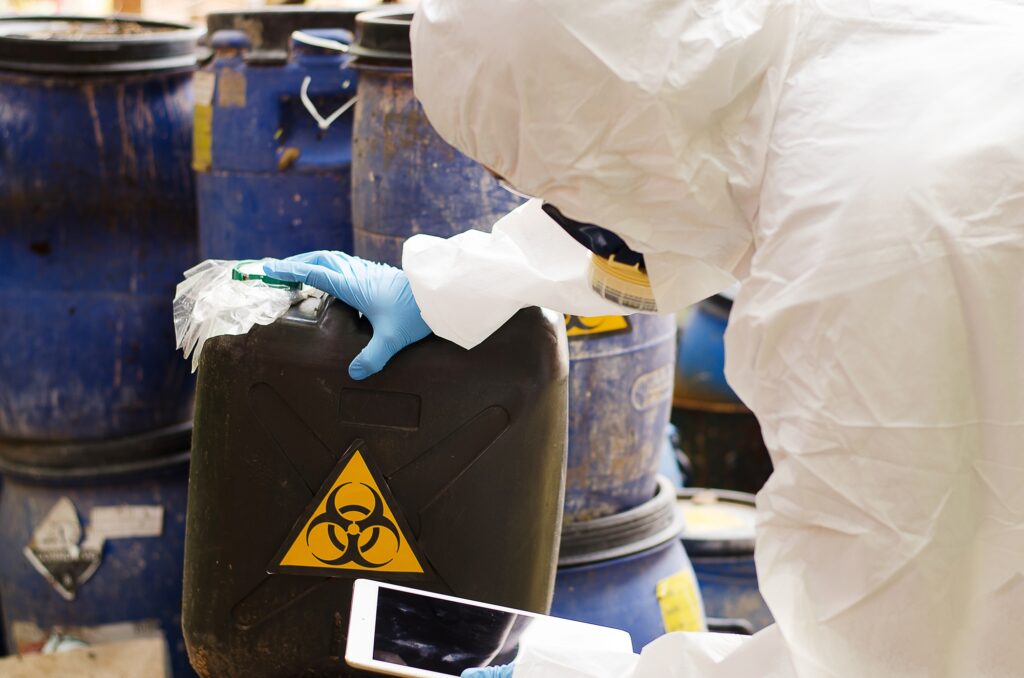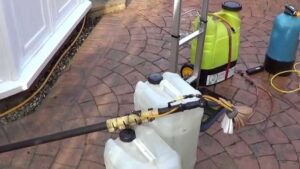
It’s quite surprising to discover that in today’s fast-paced world, the average household actually contains a variety of items that are considered hazardous materials by the US Environmental Protection Agency. These potentially dangerous substances can be found not only in industrial or laboratory environments, but also in common household items like paints, batteries, chemical cleaners, and insecticides. It’s crucial to acknowledge that all of these items pose potential risks to both human health and the environment, emphasizing the importance of responsible management and disposal of these materials.
This recognition of the existence of potentially dangerous substances in everyday homes highlights the significance of informing the general population about the essentiality of correct procedures for managing and getting rid of them. Many communities provide specialized disposal services or designated collection days for these materials, with the goal of preventing them from entering landfills and water systems, which can result in significant harm. By utilizing these services and embracing environmentally friendly alternatives for everyday necessities, individuals can make a significant impact in reducing the environmental and health hazards linked to these harmful substances. It’s a collaborative endeavor that ensures the well-being of individuals and preserves the environment for future generations.
Getting Familiar With Hazardous Household Waste
Household hazardous waste (HHW) encompasses a variety of items that may pose a risk to health and safety if not managed correctly. Improper disposal or storage of these items can lead to significant hazards, including fires, explosions, and harmful chemical reactions. It’s crucial to acknowledge that numerous everyday household items are considered HHW, serving as a vital reminder of the potential hazards found in our living spaces, ranging from kitchen cabinets to garage storage areas.
It is crucial to follow proper waste disposal practices for household hazardous waste (HHW) to minimize the potential health and environmental risks associated with these materials. Many communities provide dedicated collection events or facilities for handling HHW, guaranteeing the safe processing, recycling, or disposal of these items. Through the utilization of these programs, individuals can actively participate in minimizing the risk of environmental pollution and protecting public health. It’s crucial to familiarize yourself with local waste disposal guidelines and services, which often provide guidance on how to properly handle batteries, paint, electronics, and other common types of household hazardous waste.
Achieving Effective HHW Management
Ensuring the proper collection and disposal of household hazardous waste (HHW) is crucial for safeguarding the environment and the well-being of individuals. HHW encompasses a diverse array of materials, including old paint, batteries, pesticides, and cleaning products, that can pose risks if not handled with care. Through involvement in specialized community programs focused on the safe disposal of hazardous household waste (HHW), individuals can make a valuable contribution toward minimizing environmental contamination and health risks. Using resources like the Earth 911 database is a proactive approach to finding nearby collection sites for HHW. This helps ensure that these potentially hazardous materials are handled and disposed of in an environmentally responsible way.
Every household must recognize the significance of correctly disposing of Household Hazardous Waste (HHW). It is crucial to handle HHW properly in order to prevent significant environmental and health risks. Everyday actions like disposing of chemicals improperly can have serious consequences. Mismanagement of HHW can result in contamination of soil and water, putting wildlife at risk and posing dangers to children and pets. It is essential for everyone to adhere to proper measures when it comes to the responsible handling of HHW.
At HCI Environmental, we understand the criticality of prioritizing safety when it comes to handling hazardous waste. It is crucial for individuals and organizations to diligently follow waste disposal guidelines and regulations to minimize the potential risks linked to hazardous waste. By utilizing the services of skilled waste management professionals, particularly those from licensed disposal facilities, we can guarantee that hazardous waste is handled in a manner that places a high emphasis on safeguarding public health and protecting the environment. This unwavering dedication to ensuring the safe disposal of hazardous waste is essential in protecting local communities and preserving the natural environment for the well-being of future generations.
Safety Protocols for Proper Handling and Disposal
One crucial aspect of promoting safer household hazardous waste (HHW) management begins when you are at the store, prepared to make a purchase. It is crucial to thoroughly read and adhere to the instructions given on product labels. By following this straightforward practice, you can effectively reduce the risk of accidents, promote the proper use of the product, and receive guidance on the appropriate methods of disposal. For a more secure HHW management, take into account the following important factors:
- Storage and Disposal: It is important to always adhere to the manufacturer’s instructions regarding the proper handling, storage, and disposal of HHW.
- Avoid Accidental Mixing: Be mindful of product labels to prevent potentially hazardous chemical reactions.
- Container Safety: It is crucial to store hazardous materials in their original containers and clearly label them to avoid any accidental ingestion or misuse.
- Regular Inspection: It is important to regularly check your storage areas for any signs of damage to containers holding HHW. This will help ensure the safety and integrity of your storage and prevent any potential leaks or ruptures.
In Summary
With the growing prevalence of household hazardous materials (HHW), it is more important than ever to emphasize the importance of informed and responsible handling and disposal practices. By acknowledging and embracing our personal and shared duty in this endeavor, we can make a substantial impact on creating a safer, healthier, and more sustainable environment. Taking proper care of HHW is crucial for the well-being of our immediate environment and the responsibility we have towards future generations. It is crucial for everyone to prioritize becoming more responsible caretakers of the environment by consistently and diligently handling HHW.
Ultimately, tackling the issue of household hazardous materials goes beyond mere adherence to regulations. It reflects a deep ethical dedication to safeguarding the well-being of our planet. As we navigate the intricacies of HHW management, let us stay committed to this cause for the betterment of our environment, our communities, and future generations. Collectively, we possess the ability to make a significant impact and establish a lasting reputation for our commitment to preserving the environment. To learn more about how you can make a valuable contribution to this important endeavor, click here.







